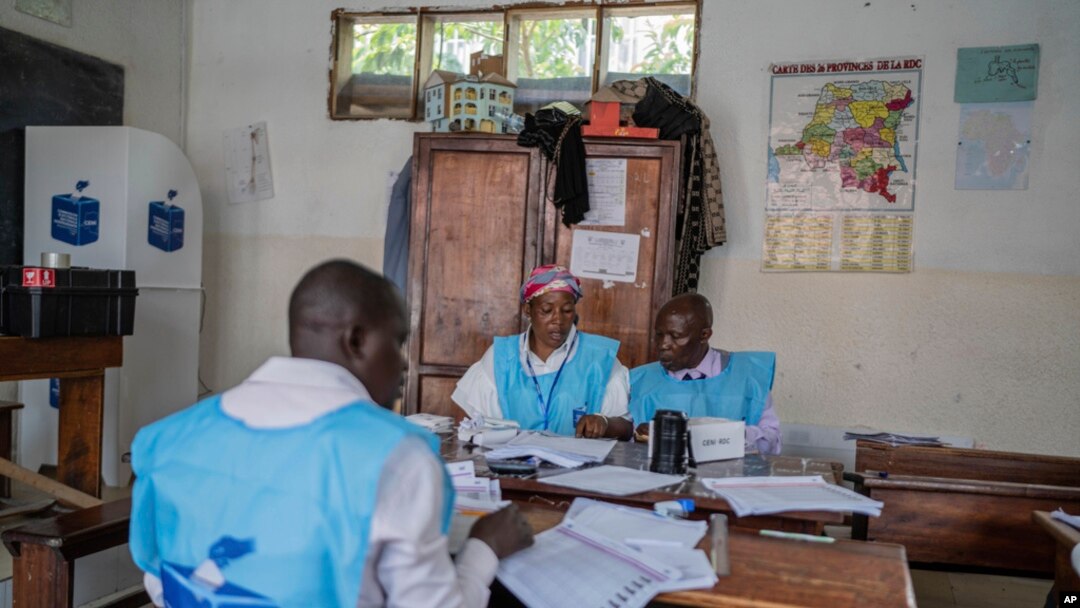The vote will determine whether President Felix Tshisekedi serves a second term after a first five years in office marked by economic hardship and spiraling insecurity in the DRC's rebel-plagued east.
Disputed elections have often sparked unrest in Africa's second-largest country, which is also the world's third-largest copper producer and the top producer of cobalt, a key component in electric car batteries.
The elections on Wednesday were derailed by delays in delivering election kits and malfunctioning equipment. People also struggled to find their names on registers, while violence disrupted the poll in other places.
Your browser doesn’t support HTML5
Voters Report Delays and Disruptions in DRC Election
Voting for some was extended into Thursday, prompting five opposition presidential candidates to call for a new election, saying the extension was unconstitutional.
Both opposition and independent observers have said voting unfolded in a way that could affect the credibility of results.
The national election commission (CENI) has denied this and said it would start publishing provisional results from Friday.
It has set up a results center in Kinshasa called Basolo — meaning "truth" in the local Lingala language — where results from each polling station will be shared publicly as they come in. This has been a key demand of the opposition and civil society, who say the lack of transparency at previous elections enabled fraud.
The CENI has set a December 31 deadline for the release of full provisional results, but it is not clear if this will change due to the unexpected voting extension.
Speaking on radio station Top Congo FM, the vice president of the commission, Didi Manara, said on Thursday the logistical setbacks were out of the CENI's control and had nothing to do with bad planning.
He noted that the DRC had extended voting to a second day in parts of the country during the 2011 election.
Around 44 million people were registered to take part in the vote, which followed a campaign that was also marred by violence.
The observer mission from the DRC's powerful Catholic Church has deployed more than 25,000 observers to do its own compilation of election results. They did the same during the 2018 election, when they contested the results of the CENI's vote count.


